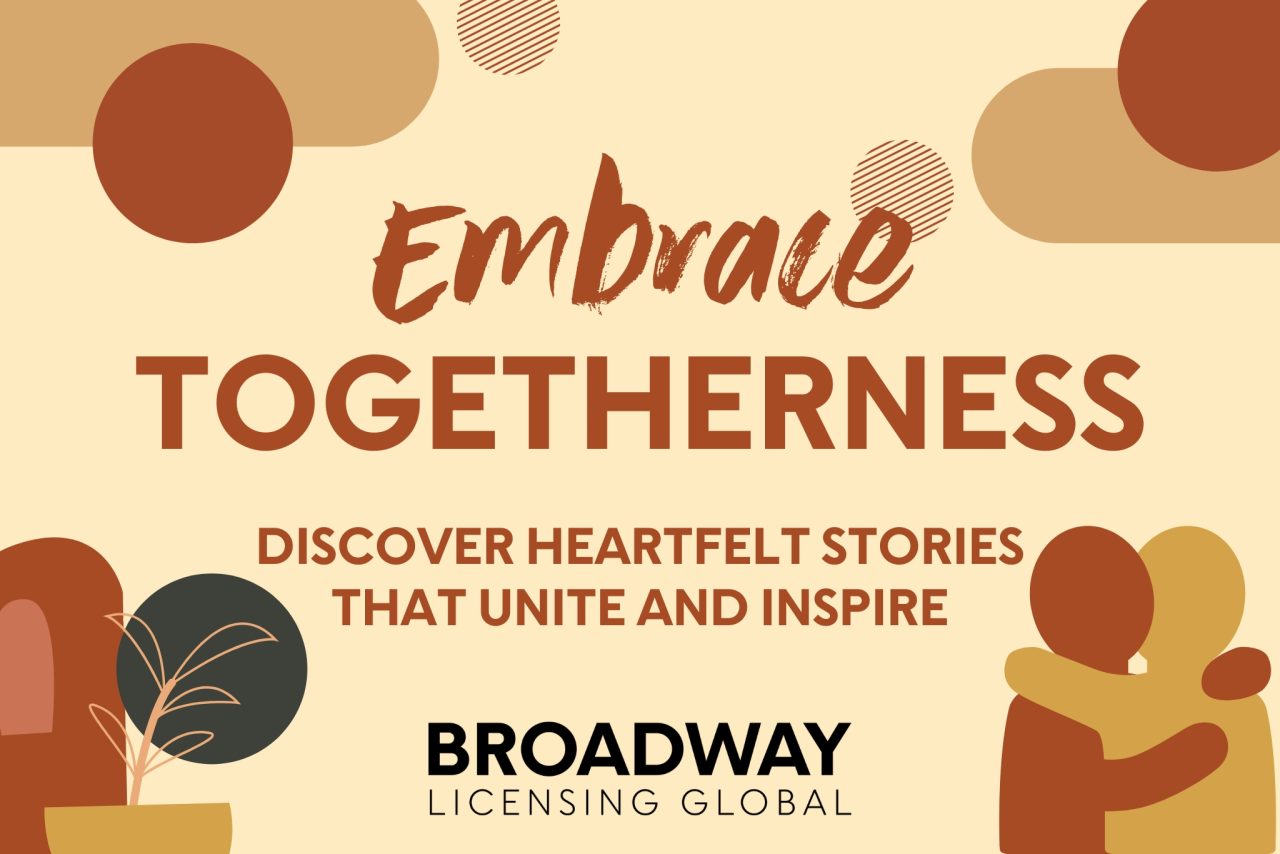As we enter November, a month dedicated to reflection and gratitude, we invite you to embrace togetherness through our heartfelt stories. Join us in discovering narratives that unite and uplift, reminding us of the strength found in community and shared experiences during this special time of year.
Musicals
Let It Be; Developed for the stage by Stageworks Productions and Annerin Productions, Originally conceived by Maggie Pitts
Set in the turbulent times of the 1960s and 1970s, Let it Be, follows a group of teenage friends and their intertwining stories during the height of the Vietnam War. The teens struggle with the unrest of the country, their loss of innocence and the long journey home.
Told solely through the stirring music and compelling lyrics of their greatest hits, including “Come Together,” “Blackbird,” and more, the staging and choreography propel the story forward allowing the focus to remain on the genius of The Beatles and the impact of their music. Let it Be proves The Beatles are just as relevant today, as yesterday. A winning title for schools, colleges, and community and professional theatres.
Penelope, or How The Odyssey Was Really Written; Book and Lyrics by Peter Kellogg, Music by Stephen Weiner
It’s funny, it’s fierce and, above all, it’s epic!
For the last twenty years, Penelope has been waiting for her husband Odysseus to return from the Trojan War. Meanwhile, a bevy of suitors have gathered, each wanting to marry her and take over the kingdom. Since they have little else to do but eat and drink, they decide to form an a capella group.
To stall them, Penelope writes letters to herself and pretends they’re from Odysseus saying he’s on his way. Little does she know, her letters gathered together are creating the story of The Odyssey.
Quilters by Molly Newman and Barbara Damashek
Ostensibly the story of a pioneer woman and her six daughters, Quilters blends a series of interrelated scenes into a rich mosaic which captures the sweep and beauty, the terror and joy, the harsh challenge and abiding rewards of frontier life. Illuminating stories contained in various patches or “blocks” with music, dance and drama, the action depicts the lot of women on the frontier: girlhood, marriage, childbirth, spinsterhood, twisters, fire, illness and death. But, with this, there is also love, warmth, rich, and lively humor and the moving spectacle of simple human dignity and steadfastness in the face of adversity. In the end, when the various patches are assembled into one glorious, brilliantly colorful quilt, the effect is both breathtaking and magical—and a theatrical masterstroke which will linger in the mind and memory long after the house lights have dimmed.
Plays
You Can’t Take It with You by Moss Hart and George S. Kaufman
Winner of the 1937 Pulitzer Prize for Drama
The family of Martin Vanderhof lives “just around the corner from Columbia University—but don’t go looking for it.” Grandpa, as Martin is more commonly known, is the paterfamilias of a large and extended family: His daughter, Penny, who fancies herself a romance novelist; her husband, Paul, an amateur fireworks expert; their daughter, Alice, an attractive and loving girl who is still embarrassed by her family’s eccentricities—which include a xylophone player/leftist leaflet printer, an untalented ballerina, a couple on relief, and a ballet master exiled from Soviet Russia. When Alice falls for her boss, Tony, a handsome scion of Wall Street, she fears that their two families—so unlike in manner, politics, and finances—will never come together. During a disastrous dinner party, Alice’s worst fears are confirmed. Her prospective in-laws are humiliated in a party game, fireworks explode in the basement, and the house is raided by the FBI. Frustrated and upset, Alice intends to run away to the country, until Grandpa and Co.—playing the role of Cupid—manage not only to bring the happy couple together, but to set Tony’s father straight about the true priorities in life. After all, why be obsessed by money? You can’t take it with you.
The Hallelujah Girls by
Hilarity abounds when the feisty females of Eden Falls, Georgia, decide to shake up their lives. The action in this rollicking Southern comedy takes place in SPA-DEE-DAH!, the abandoned church-turned-day-spa where this group of friends gathers every Friday afternoon. After the loss of a dear friend, the women realize time is precious, and if they’re going to change their lives and achieve their dreams, they have to get on it now! But Sugar Lee, their high-spirited, determined leader, has her hands full keeping the women motivated. Carlene’s given up on romance, having buried three husbands. Nita’s a nervous wreck from running interference between her problematic son and his probation officer. Mavis’ marriage is so stagnant she’s wondering how she can fake her own death to get out of it. And sweet, simple Crystal entertains them all, singing Christmas carols with her own hilarious lyrics. The comic tension mounts when a sexy ex-boyfriend shows up unexpectedly, a marriage proposal comes from an unlikely suitor and Sugar Lee’s archrival vows she’ll stop at nothing to steal the spa away from her. By the time the women rally together to overcome these obstacles and launch their new, improved lives, you’ve got a side-splitting, joyful comedy that will make you laugh out loud and shout “Hallelujah!”
Community Garden by Justin Borak
Uptown, Chicago, newbie Ralph doesn’t quite know what to expect during his first volunteer shift at Uptown City Gardens. It’s certainly not the vibrant, bustling community that passes through the green space, checking on their plants, composting their food scraps, meeting up with friends, and—surprisingly often—falling in love. After a few hours, Ralph begins to understand seasoned volunteer Donald’s claim that the garden is magic. In a series of heartfelt and humorous vignettes, Community Garden digs into the ways taking care of the environment helps people take care of each other.
Every Brilliant Thing by Duncan Macmillan, with Jonny Donahoe
You’re six years old. Mum’s in hospital. Dad says she’s “done something stupid.” She finds it hard to be happy. So you start to make a list of everything that’s brilliant about the world. Everything that’s worth living for. 1. Ice cream. 2. Kung Fu movies. 3. Burning things. 4. Laughing so hard you shoot milk out your nose. 5. Construction cranes. 6. Me. You leave it on her pillow. You know she’s read it because she’s corrected your spelling. Soon, the list will take on a life of its own. A play about depression and the lengths we will go to for those we love.
Jaja’s African Hair Braiding by
Jaja’s African Hair Braiding in Harlem is a salon full of funny, whip-smart, talented women ready to make you look and feel nice-nice. On this particularly muggy summer day, Jaja’s rule-following daughter Marie is running the shop while her mother prepares for her courthouse, green-card wedding—to a man no one seems to particularly like. Just like her mother, Dreamer Marie is trying to secure her future; she’s just graduated high school and all she wants to do is go to college. While Marie deals with the customers’ and stylists’ laugh-out-loud drama, news pierces the hearts of the women of the salon, galvanizing their connections and strengthening the community they have longed to make in the United States.
The Curious Savage by
Mrs. Savage has been left ten million dollars by her husband and wants to make the best use of it, in spite of her grown-up stepchildren’s efforts to get their hands on it. Knowing that the widow’s wealth is now in negotiable securities, and seeing they cannot get hold of the fortune, the stepchildren commit her to a sanatorium hoping to “bring her to her senses.” In the sanatorium Mrs. Savage meets various social misfits, men and women who just cannot adjust themselves to life, people who need the help Mrs. Savage can provide. In getting to know them, she realizes that she will find happiness with them and plans to spend the rest of her life as one of them. But when the doctor tells her there is no reason why she should remain, she hesitates to go out into a hard world where people seem ready to do anything for money. The self-seeking stepchildren are driven to distraction by their vain efforts to browbeat Mrs. Savage, but she preserves her equanimity and leads them on a merry chase. At last her friends conspire to get rid of her stepchildren, and through their simple belief in the justice of her cause, they enable Mrs. Savage to carry out her plans to establish a fund to help others realize their hopes and dreams. The dominant mood is high comedy, and the audience is left with a feeling that the neglected virtues of kindness and affection have not been entirely lost in a world that seems at times motivated only by greed and dishonesty.
Everybody by
This modern riff on the fifteenth-century morality play Everyman follows Everybody (chosen from amongst the cast by lottery at each performance) as they journey through life’s greatest mystery—the meaning of living.
Shows for Days by
It’s May 1973 when a young man wanders into a dilapidated community theater in Reading, PA. The company members welcome him—well, only because they need a set painter that day. The young man then proceeds to soak up all the idealism and the craziness that comes with being part of a struggling theater company with big dreams. When a playwright looks back at his beginnings in the theater and decides to chronicle those experiences in a play, all sorts of things can happen. If you’re Douglas Carter Beane, who grew out of his Reading, PA, community theater days to become one of the stage’s master writers, it’s bound to bring a measure of gimlet-eyed reflection, a large dollop of self-deprecation, and a heaping dose of hilarity.
BLKS by
When shit goes down, your girls show up. Waking up to a shocking and personal health scare, Octavia and her best friends, June and Imani, go on a crusade to find intimacy and joy in a world that could give a fuck less about them or their feelings. This 24-hour blitz explores what it is to be a queer blk woman in 2015 New York, how we survive and save ourselves from ourselves.
Leopoldstadt by
Winner of the 2023 Tony Award® for Best Play
Spanning fifty years and multiple generations, Leopoldstadt follows a family’s reckoning with a past it cannot escape and a future it cannot control. A passionate drama of love and endurance beginning in the last days of 1899 through the heart of the twentieth century, Stoppard’s customary wit and beauty shines through the enduring spirit of a family tested to its most extreme limits.
Epiphany by
On a snowy January night, Morkan invites her friends and family to her home in upstate New York to celebrate a forgotten tradition: Epiphany. Except the guest of honor is late, and no one can quite remember what the holiday is meant to signify—Is it religious? Secular? Should there be dancing? As the evening wears on, the group becomes uneasy, wanting answers to questions both big and small: What is the best way to spend one’s time on this earth? And why is this night so important to the hostess?
One Giant Leap: The Apollo 11 Moon Landing by
“That’s one small step for man; one giant leap for mankind.” On July 21, 1969, humans for the first time stepped onto another world. Fifty years later, the scope and daring of the Apollo 11 moon landing is still not fully understood. In One Giant Leap, Tony Award–winner J.T. Rogers tells the gripping, surprising story behind one of the greatest achievements in history. Weaving together the actual transcripts of the Apollo 11 mission, news coverage of the period, and Rogers’s interviews with the men and women who made the mission happen, ONE GIANT LEAP captures the thrills, anxieties, and triumphs of a group of men and women striving to do the impossible.
Deep Blue Sound by
On a picturesque island in Puget Sound, we find a town in a crisis: The whales have gone missing. While (unofficial) Mayor Annie searches for a solution, Chris tries to get back together with Mary; John reaches out to help Homeless Gary; Leslie longs for a faraway pen pal; Ali has come home to care for her mother; and Ella has a secret she only wants to share with local journalist Joy Mead, who she barely knows. But what about the whales? Is their absence just a seasonal glitch, or is it a sign of our collective failure to take care of the Earth? DEEP BLUE SOUND is a funny and moving play about the connections we make—and the ones we long to make—to other people, and to the world around us.
The Women of Lockerbie by
A mother from New Jersey roams the hills of Lockerbie, Scotland, looking for her son’s remains that were lost in the crash of Pan Am 103. She meets the women of Lockerbie, who are fighting the U.S. government to obtain the clothing of the victims found in the plane’s wreckage. The women, determined to convert an act of hatred into an act of love, want to wash the clothes of the dead and return them to the victim’s families. The Women of Lockerbie is loosely inspired by a true story, although the characters and situations in the play are purely fictional. Written in the structure of a Greek tragedy, it is a poetic drama about the triumph of love over hate.
Flex by
The pressure is on for the 1998 Lady Train high school basketball team—on top of a battle to bring home the championship trophy, it is also college scouting season. But the team’s performance on the court is tested as it ruptures under the weight of its own infighting, and the once-tight players begin to focus on their individual futures. What does it mean to be a Black girl on the brink of freedom and womanhood in a small town in the South? Does honoring your own wants mean sacrificing your friends, family, and team? This funny and frank play about getting a full-court press from life will have audiences cheering.





